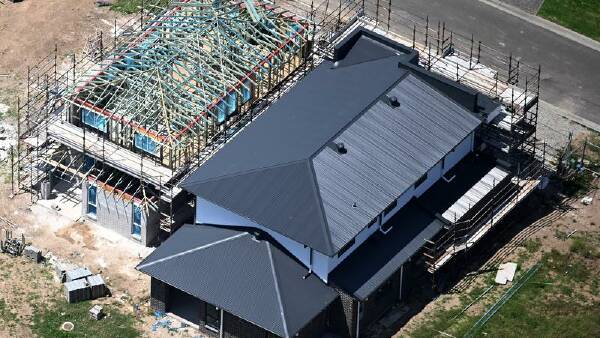
News
August 23, 2025
Warning building rule book freeze not consequence-free
A pause or review of the construction code has garnered support as a way to speed up home building but some argue a full hiatus could be counterproductive.
**Warning: Building Rule Book Freeze Not Consequence-Free**
The idea of hitting the pause button on construction codes, effectively freezing building regulations, is gaining traction as a potential solution to the housing shortage. Proponents argue that a temporary halt to updates and revisions could streamline the construction process, ultimately speeding up the building of new homes and making housing more affordable. However, experts are cautioning that such a move, while seemingly beneficial on the surface, could have unintended and potentially detrimental consequences.
The core argument for a building code freeze centers on the perceived bureaucratic hurdles and delays caused by constantly evolving regulations. Builders often face challenges adapting to new requirements, leading to increased costs and longer project timelines. A period of stability, proponents suggest, would allow the industry to catch up, reduce confusion, and accelerate construction.
However, critics warn that a complete hiatus on code updates could be counterproductive in the long run. Building codes are designed to ensure safety, energy efficiency, and accessibility. Freezing them could mean foregoing improvements in these crucial areas, potentially leading to less safe, less energy-efficient, and less accessible buildings.
For example, advancements in fire safety technology or more resilient building materials might not be incorporated into new constructions during the freeze. Similarly, opportunities to improve energy efficiency, reducing long-term costs for homeowners and minimizing environmental impact, could be missed. Furthermore, accessibility standards, crucial for ensuring inclusivity, could stagnate.
The debate highlights the complex balancing act between the need to address the housing crisis and the importance of maintaining high standards for building safety and sustainability. While streamlining construction processes is undoubtedly a priority, experts emphasize the need for a nuanced approach that considers the potential long-term implications of a building code freeze. A thorough review, rather than a complete pause, might be a more prudent course of action, allowing for targeted improvements while mitigating the risks associated with regulatory stagnation.
The idea of hitting the pause button on construction codes, effectively freezing building regulations, is gaining traction as a potential solution to the housing shortage. Proponents argue that a temporary halt to updates and revisions could streamline the construction process, ultimately speeding up the building of new homes and making housing more affordable. However, experts are cautioning that such a move, while seemingly beneficial on the surface, could have unintended and potentially detrimental consequences.
The core argument for a building code freeze centers on the perceived bureaucratic hurdles and delays caused by constantly evolving regulations. Builders often face challenges adapting to new requirements, leading to increased costs and longer project timelines. A period of stability, proponents suggest, would allow the industry to catch up, reduce confusion, and accelerate construction.
However, critics warn that a complete hiatus on code updates could be counterproductive in the long run. Building codes are designed to ensure safety, energy efficiency, and accessibility. Freezing them could mean foregoing improvements in these crucial areas, potentially leading to less safe, less energy-efficient, and less accessible buildings.
For example, advancements in fire safety technology or more resilient building materials might not be incorporated into new constructions during the freeze. Similarly, opportunities to improve energy efficiency, reducing long-term costs for homeowners and minimizing environmental impact, could be missed. Furthermore, accessibility standards, crucial for ensuring inclusivity, could stagnate.
The debate highlights the complex balancing act between the need to address the housing crisis and the importance of maintaining high standards for building safety and sustainability. While streamlining construction processes is undoubtedly a priority, experts emphasize the need for a nuanced approach that considers the potential long-term implications of a building code freeze. A thorough review, rather than a complete pause, might be a more prudent course of action, allowing for targeted improvements while mitigating the risks associated with regulatory stagnation.
Category:
Politics